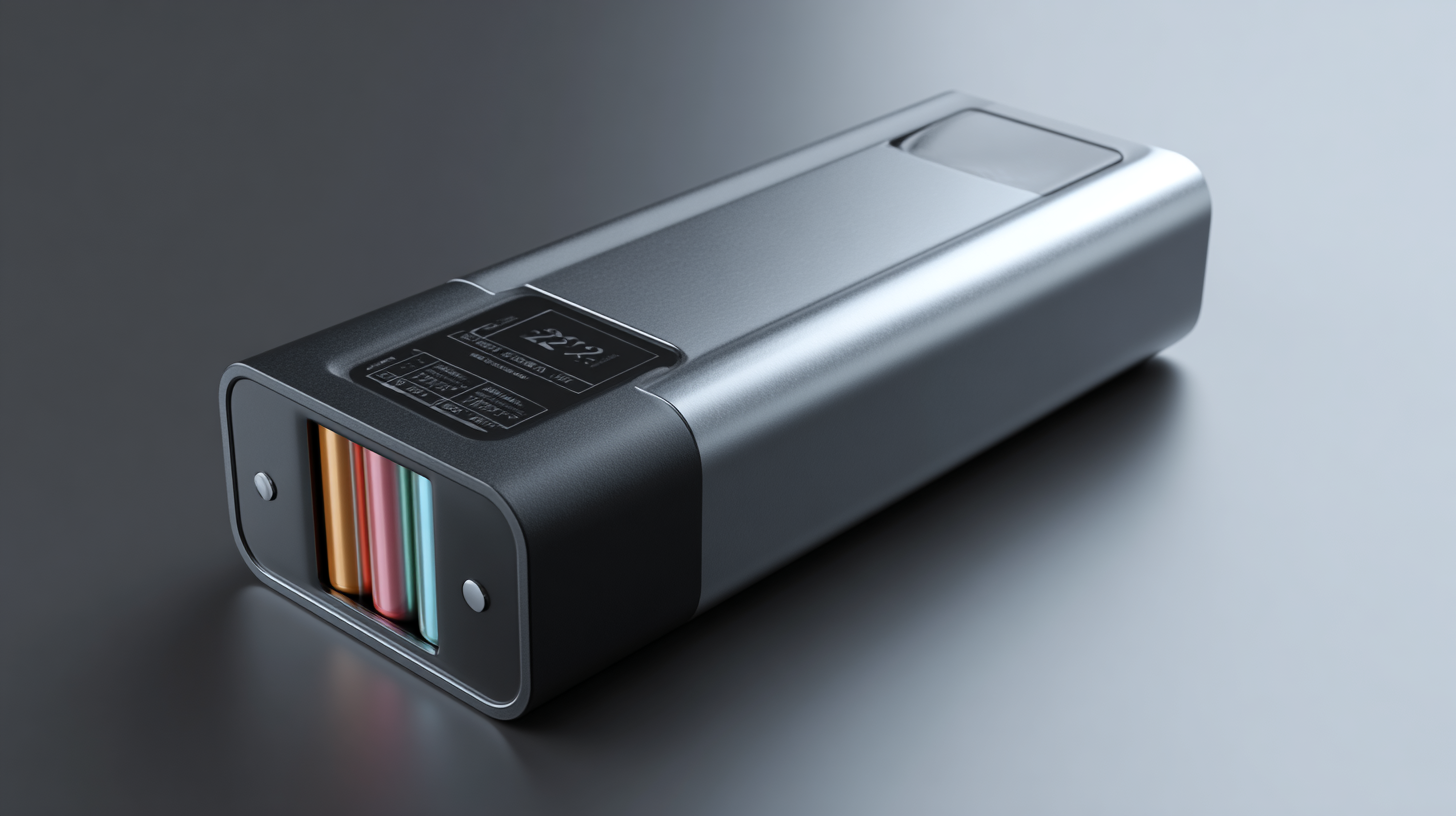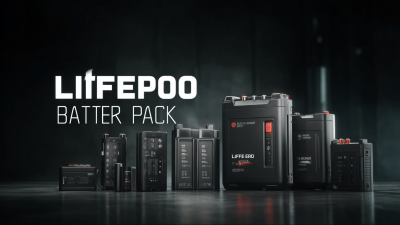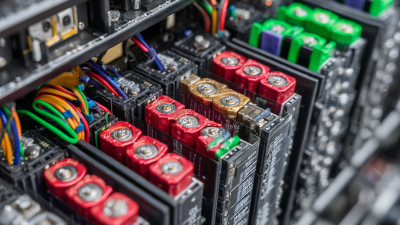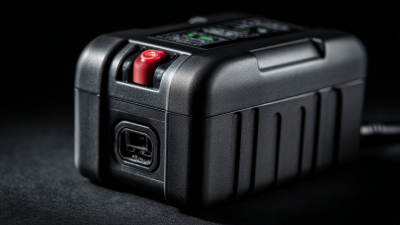In the quest for sustainable energy solutions, the 21700 Lithium Battery emerges as a leading candidate, integrating innovation with practicality. According to a report by BloombergNEF, the global lithium-ion battery market is projected to reach $100 billion by 2025, with the 21700 format playing a pivotal role due to its enhanced energy density and efficiency compared to previous models. This advanced battery type offers up to 50% more capacity than the widely used 18650 cells, making it ideal for applications in electric vehicles and renewable energy storage systems. As industries pivot towards greener alternatives, the adoption of 21700 Lithium Batteries presents significant advantages, including shorter charging times and longer life cycles, which are crucial for meeting the growing demand for sustainable energy solutions. With improved performance metrics and decreasing costs, the future of energy undeniably leans towards the robust potential of the 21700 Lithium Battery.
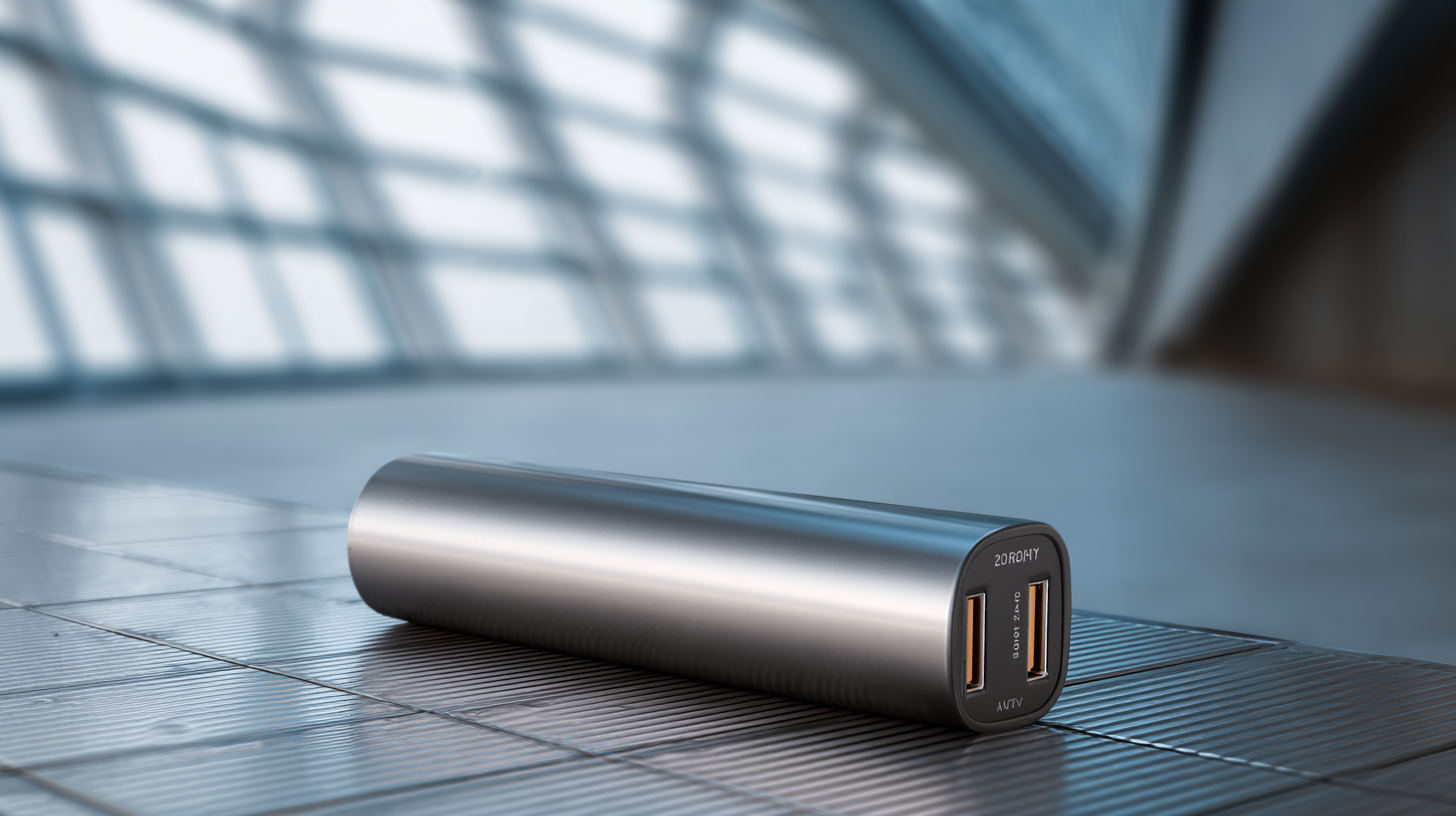
The 21700 lithium battery has emerged as a revolutionary component in sustainable energy solutions, thanks to its innovative design and superior performance. With a larger capacity than its predecessor, the 18650 battery, the 21700 offers increased energy density, enabling devices to run longer and more efficiently. This is especially crucial in applications ranging from electric vehicles to renewable energy storage, where maximizing battery life and efficiency can significantly reduce overall carbon footprints.
**Tip:** When considering a shift to 21700 lithium batteries, evaluate your energy needs carefully to select the right capacity that aligns with your requirements. High-capacity batteries can provide more power and longer usage time, but it's essential to balance performance with cost.
The design innovations of the 21700 battery revolve around enhancing safety and thermal management. Engineers have focused on optimizing the thermal runaway protection and structural integrity, making these batteries more resilient under various operational conditions. This level of reliability not only extends the lifespan of the battery but also contributes to a safer energy environment.
**Tip:** Always invest in quality assurance when purchasing 21700 batteries. Look for reputable manufacturers that offer guarantees and certifications, ensuring optimal performance and safety in your energy systems.
| Feature | 21700 Lithium Battery | Conventional Lithium Batteries |
|---|---|---|
| Size | 21mm diameter, 70mm height | 18mm diameter, 65mm height |
| Energy Capacity | 3000-4000 mAh | 1800-3500 mAh |
| Energy Density | 250-300 Wh/kg | 150-200 Wh/kg |
| Cycle Life | 500-1000 cycles | 300-500 cycles |
| Charging Time | 1-2 hours | 2-4 hours |
| Applications | Electric vehicles, portable tools | Consumer electronics, power banks |
The 21700 lithium battery is rapidly gaining traction in the energy sector, primarily due to its higher energy density compared to traditional lithium-ion batteries. With a capacity typically ranging from 4,000 to 5,000 mAh, the 21700 cells provide approximately 30% more capacity than their 18650 counterparts, making them ideal for applications requiring prolonged power supply. According to a report by Statista, the global lithium-ion battery market is expected to reach $129.3 billion by 2027, emphasizing the growing reliance on more efficient energy storage solutions.
One of the main advantages of 21700 batteries is their ability to deliver better performance under high-drain conditions. Their construction allows for increased thermal management, thereby improving safety and longevity. In fact, recent studies indicate that 21700 batteries can retain up to 80% of their capacity after 1,500 charging cycles, compared to only 500 cycles for traditional lithium-ion batteries. This makes them a more sustainable choice for electric vehicles and renewable energy storage systems.
Tips: When considering a switch to 21700 batteries, it's essential to assess your energy needs carefully. Look for products that specify their cycle life and energy density, ensuring they meet your specific application requirements. Additionally, ensure compatibility with your existing systems; most manufacturers are now designing devices to integrate seamlessly with this newer technology.
This chart compares the energy density, cycle life, charge time, and discharge rates of 21700 lithium batteries to traditional 18650 lithium-ion batteries, highlighting the advantages of 21700 batteries for sustainable energy solutions.
The 21700 lithium battery has emerged as a significant advancement in energy storage, particularly for sustainable power solutions. One of the primary advantages of the 21700 model is its increased capacity compared to its predecessor, the 18650 battery. This higher capacity allows for more energy to be stored in a smaller physical space, enhancing the energy density of battery packs. Consequently, this leads to fewer cells needed to achieve the desired energy output, making the entire system more efficient—both in terms of space and weight.
Furthermore, the 21700 battery is instrumental in the transition towards sustainable energy. Its design not only boosts efficiency but also supports longer usage times for electronic devices and electric vehicles. As industries continue to prioritize sustainability, the enhanced performance of 21700 batteries is contributing to the broader adoption of clean energy technologies. By facilitating more effective energy storage solutions, these batteries play a crucial role in driving the future of energy towards sustainability and innovation.
The 21700 lithium battery has emerged as a powerful solution in the realm of renewable energy systems, heralding a new era of efficient energy storage. With its larger capacity compared to traditional lithium-ion batteries, the 21700 design allows for higher energy density, making it ideal for applications ranging from solar energy storage to electric vehicles. Its versatility enables it to effectively support grid stabilization by storing surplus energy produced during peak production times, which can then be released when energy demand surges.
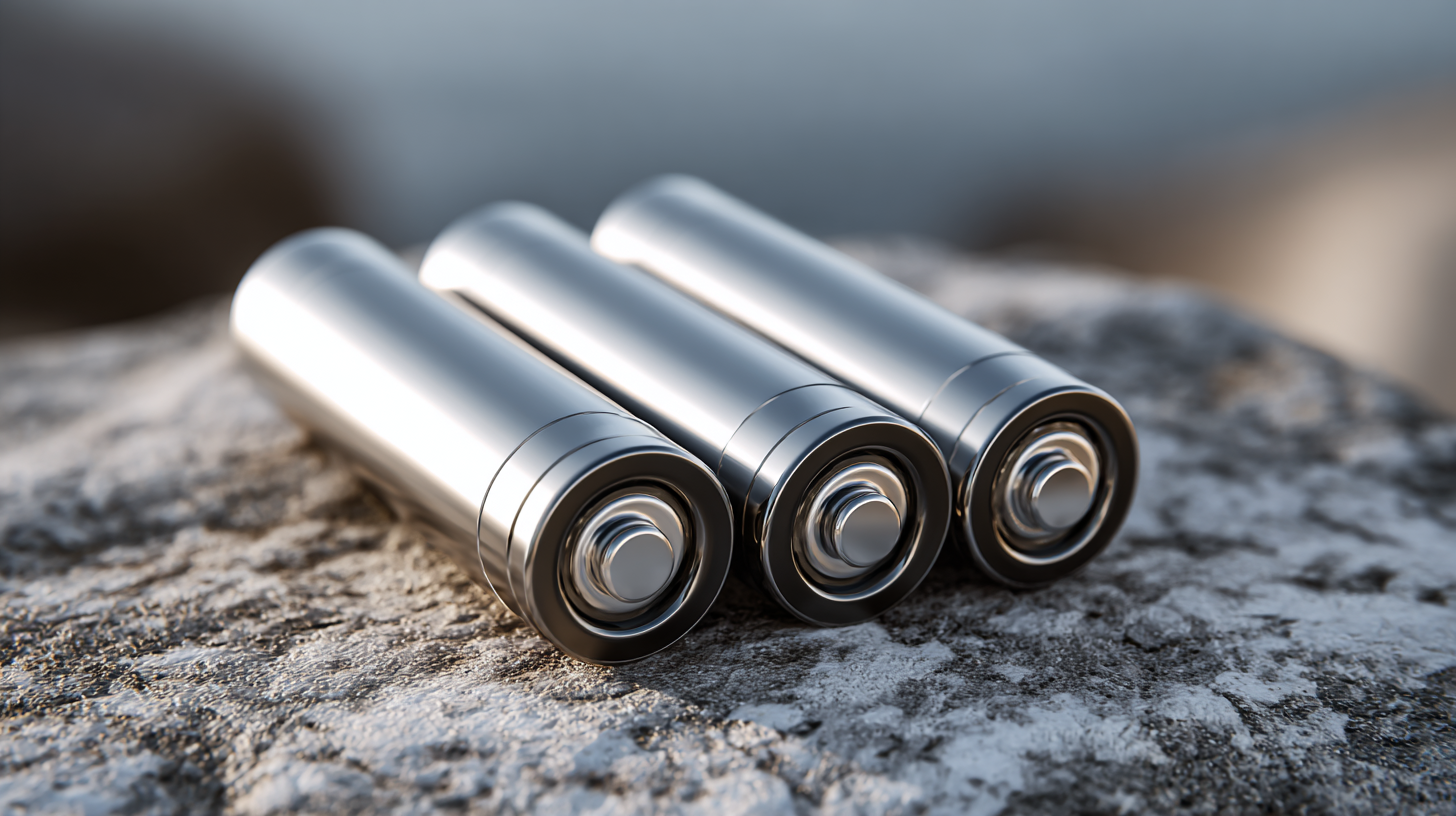
Moreover, the compact and lightweight characteristics of the 21700 battery facilitate integration into various renewable energy applications. For instance, in solar power systems, these batteries provide a reliable means of storing energy generated during sunlight hours for use at night or during cloudy days. Additionally, their enhanced safety features and longer lifespan contribute to lower maintenance costs and greater reliability, making them a preferred choice for both residential and commercial energy storage systems. As the transition to sustainable power sources accelerates, the advantages of 21700 lithium batteries will play a crucial role in shaping the future of energy.
As the demand for sustainable energy solutions continues to rise, the 21700 lithium battery is emerging as a key player in the landscape of future energy technology. This larger format battery not only offers a higher energy density compared to its predecessors, such as the 18650, but also enhances efficiency and longevity. With advancements in materials and manufacturing processes, the 21700 batteries demonstrate improved thermal management and faster charging capabilities, making them ideal for a wide range of applications, from electric vehicles to renewable energy storage systems.
In the coming years, several trends are expected to shape the evolution of 21700 battery technology. Enhanced recycling processes are likely to be developed, driving sustainability and reducing environmental impact. Moreover, innovations in battery management systems will optimize performance and lifespan, pushing the boundaries of what these batteries can achieve. As manufacturers focus on scaling production and reducing costs, the 21700 lithium battery will play a crucial role in driving the transition to cleaner energy sources and promoting a more sustainable future.
